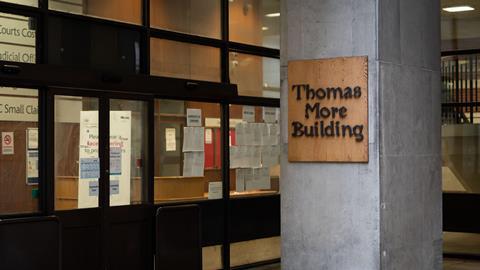A costs judge has suggested there may be 'scope for a considerable reduction' in a law firm’s final £2.5m bill over a family dispute.
London firm Thomas Mansfield Solicitors was instructed by Lisa Pickering in a dispute which has already led to two High Court actions. Pickering, who now has new solicitors, argued that the invoices delivered by her previous firm were not statute bills and not capable of assessment as a result.
Costs judge Brown did find that the invoices ‘must be regarded as statute bills’. But he acknowledged that ‘there is a dispute as to what sums the invoices claim’. The firm said its invoices total £2,533,579.14. Some £1,175,849.50 has been paid on account.
The judge said: ‘It strikes me that the bills in this case could have been drafted in a clearer way. It is however sufficiently clear from the addendum pages to the bills and the time sheets that they are final bills which comprehend all of the costs of the particular matters on which the solicitors say they were instructed.
‘It is also clear that solicitors were also giving credit for the interim payments already made against those claims.’
However, the judgment in Lisa Pickering v Thomas Mansfield Solicitors Limited went on to highlight that the ‘level of costs’ was ‘perhaps more appropriate to heavy and high-level commercial litigation’.
‘Similar factual background to the different proceedings and perhaps…to some extent overlapping issues of fact…may impact substantially on the reasonableness of the costs,’ the judge added. The limited period of instruction ‘further accentuates concerns’, he added, pointing to the 'need for explanation as to the level of costs claimed'.
The judge added: ‘A preliminary consideration of the time sheets would appear, at the very least, to confirm my concern that there is scope for considerable reduction of sums claims in the bill. Indeed a preliminary consideration of the information available suggests there might even be room for challenge in respect of hourly rates.
'On the issue of quantum alone and for the multiple reasons set out above (whether considered in aggregate or independently) I am not satisfied on the available information that there is or might not be a creditable challenge the level of these costs or, with at least a significant degree of confidence, that the defendants are indeed likely to recover more than, or appreciably more, than has already been paid.'
This article is now closed for comment.




























3 Readers' comments